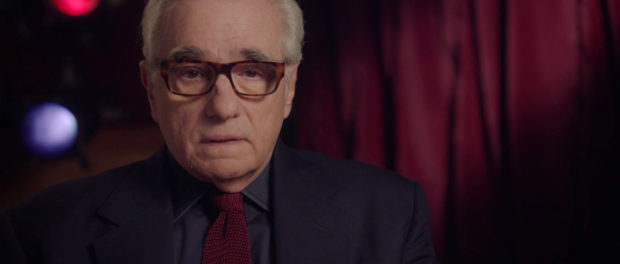The Pulitzer at 100: A Century of Rewarding Excellence
The pen is mightier than the sword. A picture is worth a thousand words. Both of these old adages have been proven true time and time again. The documentary The Pulitzer at 100 is especially timely considering the fact that in recent years, our society has been inundated by claims of fake news and alternative facts. The current US administration has not only tried to limit the power of the press, but also convince people that investigative journalism is public enemy #1. What better way to combat this falsity than with a film about an award that celebrates the very best of the written word. For a hundred years, the Pulitzer Prize has honoured the best in a variety of literary genres including journalism, fiction, poetry, drama, and musical composition. Its recognition of excellence serves to provide evidence that there are still a great many writers working in the US who remain dedicated to their craft and committed to striving for excellence.
The Pulitzer at 100 was directed by Oscar winner Kirk Simon and features a powerful array of emotional readings from various Pulitzer Prize winning works by an impressive collection of performers, including Helen Mirren, John Lithgow, Natalie Portman, Liev Schreiber, and Martin Scorsese. The documentary also features a wide array of interviews with prize winning journalists, dramatists, novelists, and musicians. Some of the notable names appearing in the film include Carl Bernstein, David Remnick, Sheri Fink, Paula Vogel, Tony Kushner, Junot Díaz, Toni Morrison, Wynton Marsalis, and John Adams.
The Pulitzer at 100 covers a century of great literary work and at times it seems as if the documentary tries to do too much; to be all things for all people. So much material is crammed into the 90-minute film that certain fields (ie. musical composition and coverage of major news stories such as 9/11) feel rushed. There’s simply no way that a single documentary can adequately cover a hundred years’ worth of outstanding work in the genres of investigative journalism, photographic journalism, poetry, drama, fiction, and musical composition, and all with the same degree of detail.

The Pulitzer at 100.
The documentary also takes a biographical look into the life of Joseph Pulitzer and his evolution. We learn about his change from being a poor Hungarian immigrant who couldn’t speak English, sleeping on park benches, to his career as a wealthy and influential publisher. The documentary doesn’t shy away from the period in Pulitzer’s career when his newspapers were popular not for their investigative reports but rather for a brand of so called “yellow journalism,” which emphasized sordid tales of scandal and crime. The film goes on to illustrate how Pulitzer established the Columbia School of Journalism and later, due to his endowment to Columbia University, how the prize bearing his name was established. It was a kind of artistic penance for the period in which his papers focused more on sensationalism and selling copies than practicing ethical journalism.
Many of the segments in The Pulitzer at 100 could’ve served as material for separate documentaries all of their own. A good example of this is the heartbreaking accounts surrounding Hurricane Katrina. This disaster is presented through the lens of various photo journalists as well as reporters on the scene. Stories like these serve to shed light on issues such as the U.S. government’s failure to protect and provide adequate and timely aid to its citizens.

The Pulitzer at 100.
The Pulitzer at 100 is a thought-provoking film that is especially timely given the current climate. Top politicians have worked tirelessly to vilify journalists and portray all those who are given a voice through the arts as being the enemy of an effective government. Powerful photojournalism such as Nick Ut’s work during the Vietnam War and in particular his “burning napalm girl” photo have the power not only to educate, but on a larger scale, to actually effect real political, social, and cultural change. The Pulitzer at 100 illustrates that a free and unbiased press as well as an unfettered, inclusive, and diverse artistic community are both essential elements to maintaining a healthy democracy.
The Pulitzer at 100 is now available on DVD.






